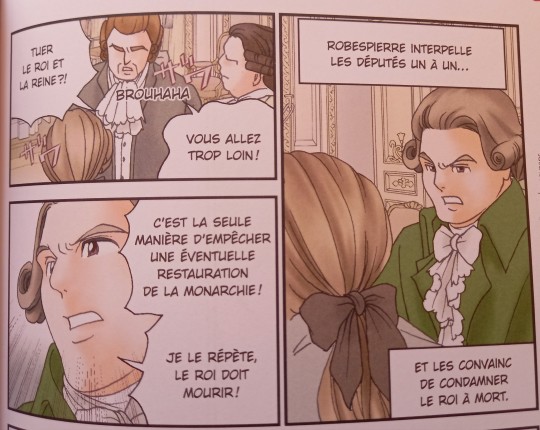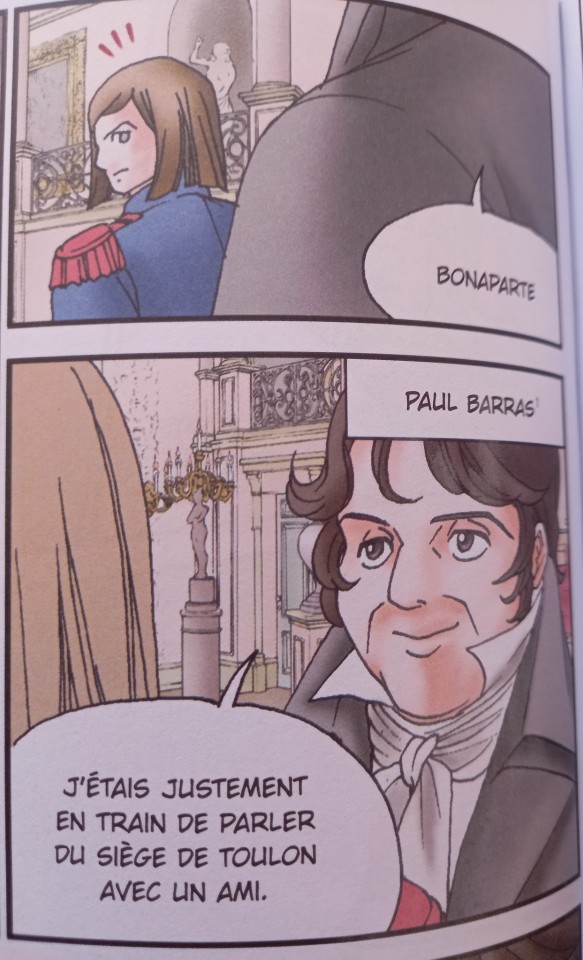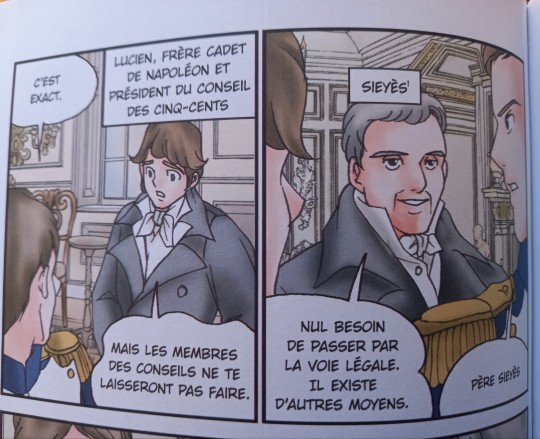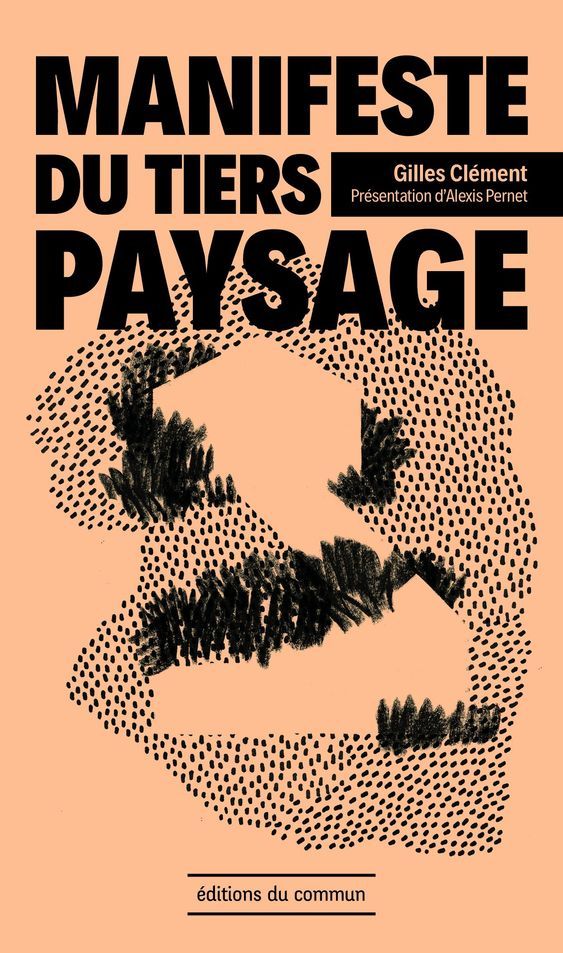#sieyes
Explore tagged Tumblr posts
Text







L'histoire en manga vol.7 part 2
#frev#robespierre#napoleon#josephine de beauharnais#barras#sieyes#lucien bonaparte#alexander i of russia#francis ii#robespierre is the bad guy...again#did we have the first manga barrere ?
68 notes
·
View notes
Text
okay, there's a party at the Luxembourg Palace and
Barras has called Fréron "the king of idiots".
Napoleon has just abruptly left Josephine alone to go talking with Carnot.
She is clearly displeased :(

And not only that, Napoleon even invites the latter to play chess with him. Splendid!

Aren't they cute?
They are currently gossiping about Sieyes and Talleyrand who are playing chess together at a table nearby lmao.
Napoleon is gonna lose all the matches. Of course.
#i can hear Prieur screaming in the distance#first and only time I agree with barras btw#i grandi camaleonti#napoleon#lazare carnot#frev#frev movies
59 notes
·
View notes
Text
Nicknames of French revolutionaries
I'm trying to fit in the nicknames of the French revolutionaries of 1789. So the post is not very serious. I'll add a few and I'll let you add some :)
Antoine Barnave: The Tiger Mirabeau:The Torch of Provence Camille Desmoulins:The Man of July 14 Antoine François Momoro: The First Printer of National Liberty(nickname that he gave himself, I must admit ^^) Hébert:Took back his nickname Père Duchesne Anacharsis Cloots: The orator of mankind (a nickname he also gave himself) Robespierre Maximilien:The Incorruptible Lazare Carnot: The Organizer of the Victory Antonelle Pierre-Antoine:The Invariable René François Lebois: According to Bernard Gainot's research, this neo-Jacon was considered "Le Nouvel ami du peuple " printer of Bernard Medge's pamphlet "Dialogue between a representative of the people and a former administrator of the department" This one to partly clash with the following character, I admit, Sieyes- the obscure metaphysician
18 notes
·
View notes
Note
Fuck marry kill
talleyrand sieyes a clone of yourself
"Well, I was going to answer differently, but I've seen how some people mentioned here answered in a similar game, so I now know where I stand. Kill Talleyrand, this way we are equals, then. Um. Congress with Sieyès, I suppose, and then marrying the clone so I can keep a close eye on him. I wouldn't trust him at all."
2 notes
·
View notes
Note
FUCK MARRY KILL
FOUCHE METTERNICH SIEYES
I don't hate Metternich that much, let's say kiss (and you didn't mention where the kiss had to happen)
If I had a gun with two bullets and you put me in front of Fouché, the devil himself and my mother (and I hate my mother), I'd shoot Fouché twice
And then, well... 😐 meh, could have been worse
2 notes
·
View notes
Note
What French Revolution figures were Free Masons?
Thanks!
The best I’ve got is Philippe-Égalité, who in 1771 succeeded the Count of Clermont at the head of the Grand Lodge of France, a post he held until 1793 when he gave it up with the motivation that ”I think that there should be no mystery or secret assembly in a Republic, especially at the beginning of its establishment, I do not want to meddle in nothing with the Grand Orient or with the assemblies of Freemasons.” He tells his story in a letter to the author of Journal de Paris, dated February 22 1793.
Other than that, I found a lot of places online that claim certain revolutionaries were freemasons, but without using any sources to back it up, making it hard for me to follow it up. According to the article Freemasonry and education in eighteenth century France (1954), both Pétion, Brissot, Desmoulins, Danton, Sieyes, Bailly, Céretti, Fourcroy and Condorcet were for example part of the so called Loge des Neuf Sœurs. Where was Lafayette made a mason? establishes that ”no original documentary evidence is known to be in existence which records the initiation of General Lafayette in the Masonic Fraternity, nor in what Lodge or when it took place,” but then still goes on to list historians/contemporaries that claim he was a freemason. In Camille Desmoulins and His Wife: Passages from the History of the Dantonists (1876) Jules Claretie wrote that Desmoulins was a freemason, claiming to ”have in my possession the Rosicrucian decoration (a little triangular ornament, with a pelican tearing its breast, in the middle) which Desmoulins wore at all the ceremonies of his lodge.” In the more recent Franc-maçonnerie: encore une des causes de la Révolution (2019) Pierre Mollier instead writes that Robespierre, Danton and Desmoulins never were freemasons, but that on the other hand so much as 10% of the members of the National Convention were (of which in turn a quarter were Girondins, a quarter Jacobins the rest part of the “plain”). Calculations like this really make it seem like an official study has been made on the subject, but again, no direct source is cited.
That’s the best I could get for the moment. Sorry if that’s an anticlimactic answer. :(
3 notes
·
View notes
Text
DEVLET BABA
Modern devlet teorisi, ilk olarak Niccolo Machiavelli’nin tanrısallıktan arınmış, laik/ dünyevi bir siyasal iktidar/devlet kurgusuyla başlamıştır.
Ardından Bodin egemenlik kavramını ortaya atmış ve onun niteliklerini ortaya koymuştur.
Hobbes ise toplum sözleşmesi kuramını geliştirerek modern devlet düşüncesini teorik bir temele kavuşturmuştur.
John Locke devlet iktidarının sınırlandırılmasını, Jean Jacques Rousseau halk egemenliği teorisini, Emmanuel Sieyes de ulus egemenliği teorisini savunmuştur…
Cicero, tüm staocular gibi mutlu yaşamı felsefe edinmiş, devlet üzerine yazdığı eserde, devleti yurttaşların içinde seyrettiği ve kaderini de kaptanının belirlediği bir gemiye benzetir. Hava güneşliyken seyir almak kolay olabilir ama asıl maharet devlet gemisini, fırtınalı havada alabora olmaktan kurtarmaktır. Halk, devletin iyi yönetilmesini istiyorsa iyi nitelikli adamları seçmelidir der.
Platon da devlet mutluluk felsefesi üzerine yazılmış bir metindir.
Bizim felsefemiz ise daha duygusal “DEVLET BABA” devlettir, sever de döver de
devlet, ataerkil toplumlarda, "baba"dır zaten...kısaca hem sever, hem dover...eve para getirir...bu paranın nasıl harcanacağına karar verir...sevdiği çocuklarına iyi davranır, onları ödüllendirir...kendisine karşı çıkanlara veya eleştirenlere, yani sevmediği çocuklarına karşı gaddardır...onları itina ile cezalandırır...
vatandaş aslında devlete derin bir aşkla bağlı. devletin başında kim olursa olsun onun biricik aşkı devlet. dolayısı ile devlet onun istediği gibi konuşsun/davransın istiyor. haksızlığa, hukuksuzluğa, soyulmaya, hatta işkenceye bile razı, o zaman daha katmerli seviyor. 'devlettir, sever de döver de'' diyor.
en küçük birimlerine bile aşkla bağlı. tapu kadastrodaki memurdan, kaymakama, nüfus memurundan, mal müdürüne kadar hepsine derin bir saygı sevgi besliyor. köy kahvesine jandarma geldiğinde ayağa kalkılıyor, polisin önünde esas duruşta duruyor, savcı, vali, kaymakam dedin miydi, zaten put. . selamsız bandosu gibi devletin şapkasını görse yetiyor.
yalnız aşkla sevdiği devlet hiç bunları görmüyor. hiç sevgi sözcükleri söylemiyor, söylerse de ortalığa söylüyor. tek bildiği hemen işini bitirip gitmek. vatandaş devletin arzularını tatmin etmekle yükümlü görüyor kendini ve zevk almasa da almış gibi yapıp bir sonrakine hazırlanmak. devletin ruh hali değişiyor bazen, daha derin, daha sığ, daha müslüman, daha tek adam, daha kapalı, daha açık, daha milliyetçi vs.. o zaman üzülüyor vatandaş. bu ruh hallerinde kendisini nasıl konumlandırıyorsa devleti,biricik aşkı da öyle yapsın istiyor. kalan herkesin üstüne yürüsün, ezsin, yok etsin istiyor. ihtirasla istiyor hem de. devlet düşündüğünden farklı davrandığında, küsüyor, arkasından gizli gizli konuşuyor ama sıra vazifesine gelince onu ihmal etmiyor. devletin zevk almasını sağlıyor.
çocuklarını da öyle yetiştiriyor. çok çocuk yapıyor ki, biri ölürse ötekini feda edebilsin. üzerine sadece o gün dönecek kameralara, ''devletimiz sağ olsun'' diyebilsin.
oysa başka yerlerde ilişki böyle olmuyor. devlet saygılı, vatandaşın ne dediğini dinliyor, kendini ona göre değiştirmeye yenilemeye çalışıyor. sonuç aynı olsa da, en azından bir mum ışığında yemek yiyor vatandaşıyla, bir iki tatlı söz, ne bileyim belki ön sevişme. gönlünü alıyor yani vatandaşın.
en sevmediği insanlar ise devlete karşı gelenler. bir vatandaşın devlete nasıl karşı gelebileceğine aklı almıyor. ''devlet vatandaş için var'' sözünü hazmedemiyor. koskoca devlet, itaat edilmesi, saygı duyulması, biat edilmesi, sorgulanmaması gereken devlet mi vatandaş için var? bu çok saçma. devlet ne derse o olur.
bu aşkı bozmak için bir sürü dedikodu çıkarıyorlar, yok orman, yok ağaç, yok, yolsuzluk ama vatandaşın aşkı hiç bitmiyor. hala devlet için her şeyi yapmaya hazır. seçme şansı verildiğinde, bu aşkın devam etmesini isteyecek..
4 notes
·
View notes
Text

"Manifeste du tiers paysage" by Gilles Clément
FR
(résumé)
"Si l'on cesse de regarder le paysage comme l'objet d'une industrie on découvre subitement - est-ce un oubli du cartographe, une négligence du politique ? - une quantité d'espaces indécis, dépourvus de fonction, sur lesquels il est difficile de porter un nom. Cet ensemble n'appartient ni au territoire de l'ombre ni à celui de la lumière. Il se situe aux marges. En lisière des bois, le long des routes et des rivières, dans les recoins oubliés de la culture, là où les machines ne passent pas. Il couvre des surfaces de dimensions modestes, dispersées comme les angles perdus d'un champ ; unitaires et vastes comme les tourbières, les landes et certaines friches issues d'une déprise récente. Entre ces fragments de paysage aucune similitude de forme. Un seul point commun : tous constituent un territoire de refuge à la diversité. Partout ailleurs celle-ci est chassée. Cela justifie de les rassembler sous un terme unique. Je propose Tiers paysage, troisième terme d'une analyse ayant rangé les données principales apparentes sous l'ombre d'un côté, la lumière de l'autre. Le concept de Tiers paysage renvoie à Tiers état (et non à Tiers-monde). Espace n'exprimant ni le pouvoir ni la soumission au pouvoir. Il se réfère au pamphlet de Sieyès en 1789 : "Qu'est-ce que le Tiers état ? - Tout. - Qu'a-t-il fait jusqu'à présent ? - Rien. - Qu'aspire-t-il à devenir ? - Quelque chose".
ENG
(abstract)
"If we cease to think lands as objects of industries we find suddenly - is it an oversight from cartographs or politics carelessness ? - a quantity of undecided spaces, functionless places who are hard to name. This ensemble does not belongs to a decided land of shadow or light. It belongs to the margins. At the edges of woods, by the roadsides and rivers, in corners forgotten by culture, where machines don't go. It covers spaces of modest dimmensions, dispersed like lost angles of a field, united and vast as the bog, the moors or some wastes recently deserted. Between all this fragmented spaces, no ressemblance in their aspects but one similarity : all of them form a sanctuary for biodiversity when everywhere else it is driven out. It justifies a need to regroup them all under one designation. I propose "Thirds Landscapes" (Tiers Paysages), third party of an analysis of the wolrd dividing all in black and white. This concept of thirds landscapes calls back to Third Estate - (NdT: politic incarnation of people's will as athird party to power in place) not Third World. Those spaces does not express power nor submission to power. [Gilles Clément] refers himself to the essay of Sieyes in 1789 : "What does the Third Estate wants ? Everything. What has it done for now ? Nothing. What does it wants to become ? Something."
7 notes
·
View notes
Text
OMG YES PELEASE OMG SIEYES
REBLOG IF YOU WANT A LOVE LETTER FROM A FICTIONAL CHARACTER IN YOUR ASK BOX NOW
Please
451K notes
·
View notes
Text





L'histoire en manga vol.7 part 1
14 notes
·
View notes
Text
" avete libri su Belial "
"cos'è "
MA IN CHE SENSO COS'È AL MASSIMO CHI È SIEYE INA LIBREARIA ESOYERICA
0 notes
Text
Madame de Stael syndrome
A little tip if you want to provoke disrespectful, die-hard fans of Napoleon who insult you while bashing the government of Year II. You can say they have the Madame de Stael syndrome and suggest they read some history booksas a remedy for them to heal . This is sure to annoy them XD
Why do I mention the Madame de Stael syndrome? I am deliberately exaggerating, but here are the double standards of Madame de Stael: I don't like it when Sans Culottes, led by elected people, invade the Convention to demand measures they need, like the maximum price law; I find it arbitrary and critical. But I agree when Bonaparte carries out a coup d'état using armed force and expels all the deputies so that he, Sieyes, and Ducos can have almost all the power without being elected. For more information, check out the post I made earlier here.
P.S.: Use this argument only if it's truly a disrespectful person insulting you, not someone who is polite( after all we all have the right to like love or dislike a historical character), and especially if you feel you have the time to do so. Personally, I think it's better to ignore them unless they won't leave you alone.
13 notes
·
View notes
Quote
Sieyes, of powerful mind, a student of constitutionalism, terse and logical in expression, has made a mark during the electoral period with his pamphlet, Qu'est-ce que le Tiers Etat? What is the Third Estate? His reply was: It is everything; it has been nothing; it should be something.
Robert Matteson Johnstone, The French Revolution: A Short History
2 notes
·
View notes
Text

Title: Emmanuel Joseph Sieyes
Artist: Jacques-Louis David
Date: 1817
Style: Neoclassicism
Genre: Portrait
5 notes
·
View notes
Text
Hey I'm also taking a class on the French Rev and someone very close to me studies the French Rev for like, their job, so I'm also gonna jump in.
(Also sorry this is mostly replying to the reblogs rather than the original post method, whether or not the French Revolution was good is not something I'm really interested in debating just cause like, history happened whether or not you think it's good or bad. Though like, it's a bit weird if you're out here stanning the Ancien Regime (obviously not directed at anyone in this reblog chain)).
The idea that the French Revolution wasn't revolutionary is ridiculous. It was such a game changer that it changed the way we look at the term revolution.
Yeah there was definitely an aspect of self-interest in the early days of the French Revolution. There's a reason property is a big deal in the Declaration of the Rights of Man. But like, even in the early days of the Revolution there were huge, fundamental changes to the French governmental system. Remember August 4th? When a bunch of nobles and clergyman gave up their feudal privileges (and yes they were certainly doing so in part to retain power and influence in the Assembly but this is still a Big Deal)?
The Decree of August 11th [1789] begins "The National Assembly entirely destroys the feudal regime." [Italics mine]. This is a huge deal! Like, I cannot emphasize the impact this had!! This is revolutionary, whether you think it was 'liberal' or 'bourgeois' or what. The Declaration of the Rights of Man and Citizen are also a Big Deal. So much so that historian Lynn Hunt argues our modern day view of natural rights is irrevocably tied to the French Revolution. The impact of these I think cannot be exaggerated.
You can of course talk about the way that the ideals espoused in the Declaration were implemented, whether or not they were successful. I'm not out here saying the French Revolution is a bastion of equality. We can look at both the way women were treated and the question of slavery in the colonies (especially in the early days) to see that.
But like, that doesn't mean that the French Revolution becomes superfluous. It sent shock waves across the world. It brought down an entire regime in an incredibly short amount of time. It tried to build a new sort of system of government based on new ideals which were incredibly radical. Like even if you hate Robespierre or hell like, if you hate Sieyes or Necker or the National Assembly (idk, the first years were chaotic and didn't have a figurehead like Robespierre imho) and think they all fucked it up, you can't say that they weren't trying something incredibly radical.
Also as a sidenote, the idea that the French Revolution was bourgeois is something that I really think robs the lower classes of agency. Even historians like George Lefebvre - who believed the Revolution started as something mainly propelled by the nobility before moving to something more run by the Third Estate, specifically bourgeois types - talk about the critical importance of the people.
Hell, without the October Days and the march to Versailles, it's entirely possible the National Assembly would have just foundered. Louis XVI wasn't accepting the Declaration or even acknowledging that the Assembly was the representative of the nation. All of this only happened after Versailles and the Assembly was broken into by a bunch of lower class women (and men - a great article on this is Suzanne Desan's "Gender, Radicalization, and the October Days: Occupying the National Assembly").
the fact that there are scores of tumblr users who will write entire essays on why the french revolution went too far and actually shouldnt be seen as a good thing is insane dawg get over it you lost
2K notes
·
View notes